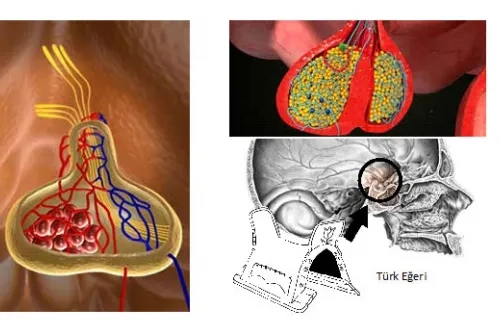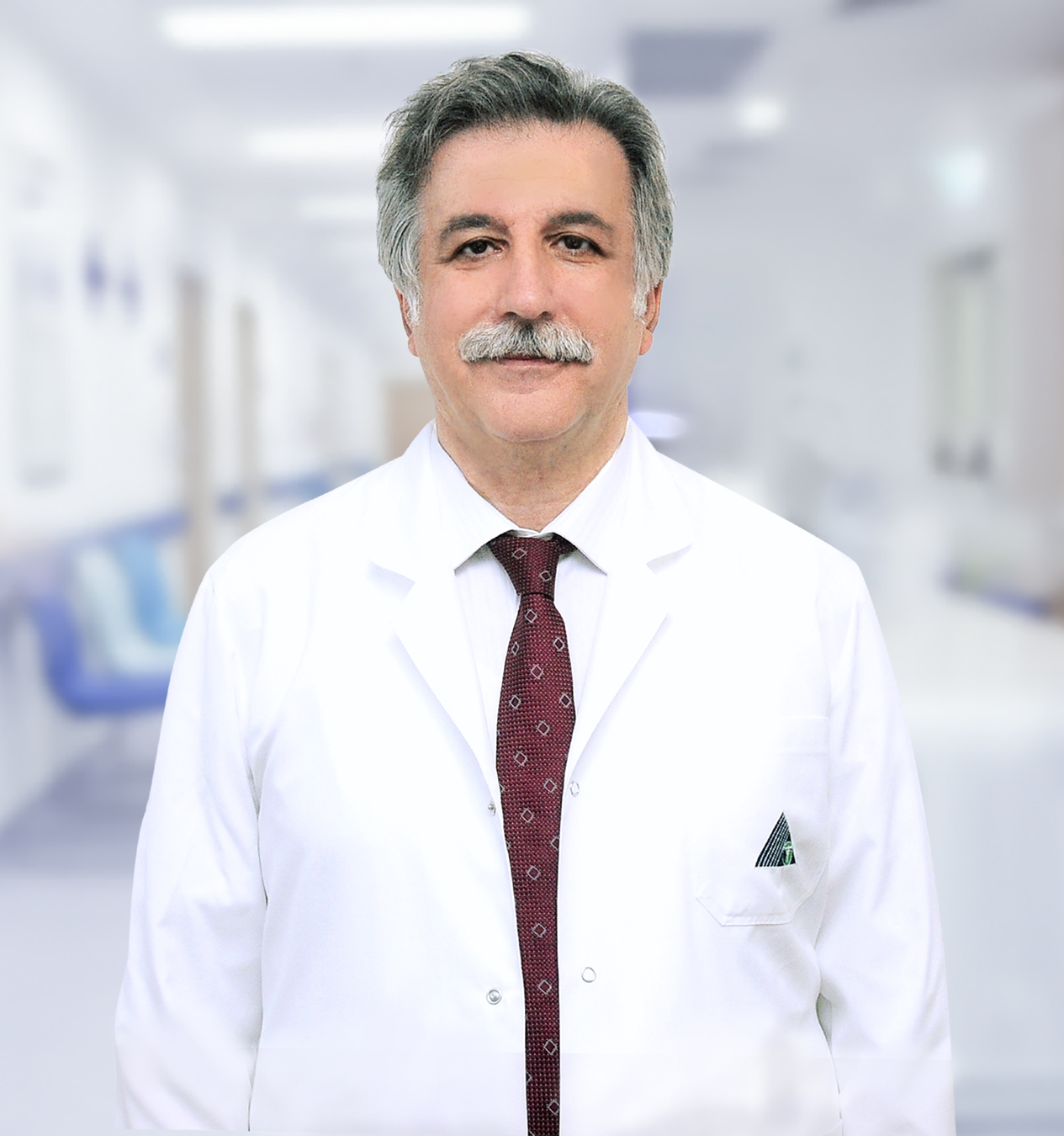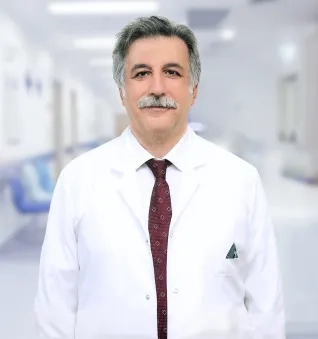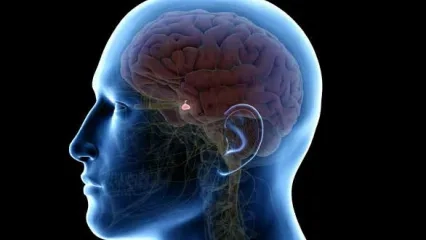Alo Yeditepe
Alo Yeditepe
What is the Pituitary Gland, What are its Functions?
The pituitary gland is a pea-sized gland located in the bone structure called Sella Turcica at the base of the brain. It is a vital organ that regulates the secretion of various hormones in our body. The average height is between -7 mm, and in women, it normally grows somewhat during pregnancy.
The pituitary gland actually works like an orchestra conductor. It is located just above the hypothalamus. Orders from the upper centers of the brain are transmitted to the hypothalamus and from there to the pituitary gland through the pituitary stem. The pituitary gland also secretes hormones that the body needs in line with the stimuli from the hypothalamus and also from the circulation, these hormones also regulate the work of other endocrine glands. The pituitary gland decides which hormone to secrete when and how much, depending on factors such as night and day, hunger, sleep, age, and eating. With these hormones secreted by the pituitary gland, it is one of the most important organs in the body in matters such as the development of our body, the work of organs, and energy balance.
Pituitary Gland Hormones
The pituitary gland regulates the work of other endocrine glands, such as the thyroid, adrenal, and testicles in men and ovaries in women, secreting different hormones from the anterior and posterior. The functions of the basic hormones secreted from the pituitary gland are as follows:
Adrenocorticotropic hormone (ACTH)
This hormone controls the secretion of hormones such as cortisol and androgen steroids from the adrenal gland. Cortisol is the most important hormone that protects the organism against stress, also provides vascular integrity, and regulates fat, carbohydrate, and protein metabolism. Androgenic steroids are responsible for a person's physical and mental well-being. They are also concerned with sexual development.
Thyroid-stimulating Hormone (TSH)
It is the hormone that controls the production of thyroid hormones by stimulating the thyroid gland. Thyroid hormones affect all tissues in the body. Controls the basal metabolic rate.
Gonadotropin Hormones
Follicle-stimulating hormone (FSH) and luteinizing hormone (LH) control ovulation and estrogen release, affecting the ovaries in women. They also regulate the secretion of testosterone from the testicles and sperm production in men. Inadequacy of gonadotropin hormones, also defined as reproductive hormones, is the cause of regression and infertility in sexual development.
Prolactin
This hormone, which directly affects the breast tissue, is responsible for the formation of milk.
Growth hormone (GH)
It secretes a hormone called IGF-1 from the liver. GH and IGF-I together are responsible for the development of the body and brain tissue, maturation of bone tissue, height increase, and metabolic events. In childhood, "excessive height increase" occurs when the growth hormone is overly secreted, and "short stature" occurs when it is under-secreted.
Antidiuretic hormone (ADH)
It provides the reabsorption of water from the kidneys and plays a role in the regulation of fluid and electrolyte balance.
Oxytocin
This hormone, which is more important for women, plays a critical role, especially in the birth process. It stimulates the contraction of the uterine muscles and allows labor to start. AVP (ADH in humans) and oxytocin are not made in the pituitary gland, they are made in the hypothalamus, stored in the posterior part of the pituitary gland, and released into circulation from here when necessary.
About
Faculty and Year of Graduation:
Hacettepe University Faculty of Medicine, 1979
”
See Also
- What is Hypoglycemia?
- Did You Know That Our Bodies are Managed by Hormones?
- Misconceptions About Hypertension
- What is Hypertension?
- Chronic Pelvic Pain
- What is Polycystic Ovary Syndrome/PCOS?
- The Hidden Problem Seen in One out of Every 10 Women: HIRSUTISM
- Persistent Headache May Be a Sign of Tumor
- The Purpose of Pituitary Diseases is to Avoid Waste of Time with the Right Treatment
- Pelvic Floor Muscles Should Be Addressed with a Multidisciplinary Approach
- Protect Children From Sports That Will Knock Their Head
- Polycystic Ovary Syndrome Can Occur If the Bacteria in the Gut Are Not Functioning Well
- Doctor Support for the Ban on Heading by Children
- Head Trauma Can Cause Permanent Damage
- Diabetes Mellitus and its Treatment
- Treatment of Pituitary Adenomas
- Surgical Treatment of Pituitary Diseases
- Pituitary Clinic | FAQs
- What are Pituitary Diseases?
- What is Hirsutism?
- Hirsutism Clinic / FAQs
- Treatment Success in Brain Tumors Also Depends on the Family
Alo Yeditepe




